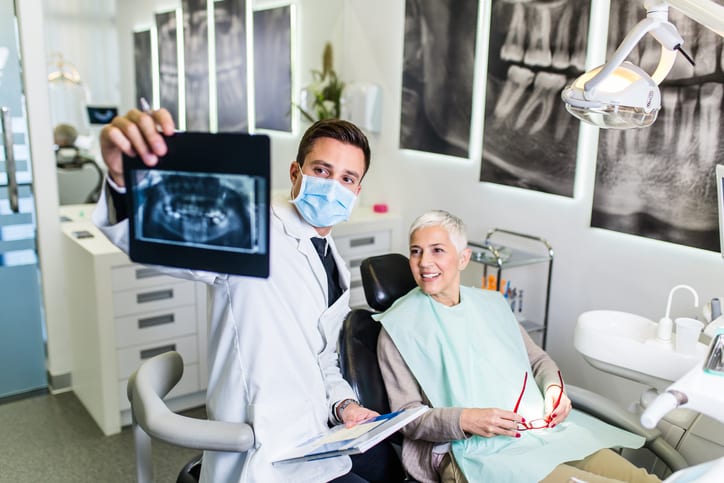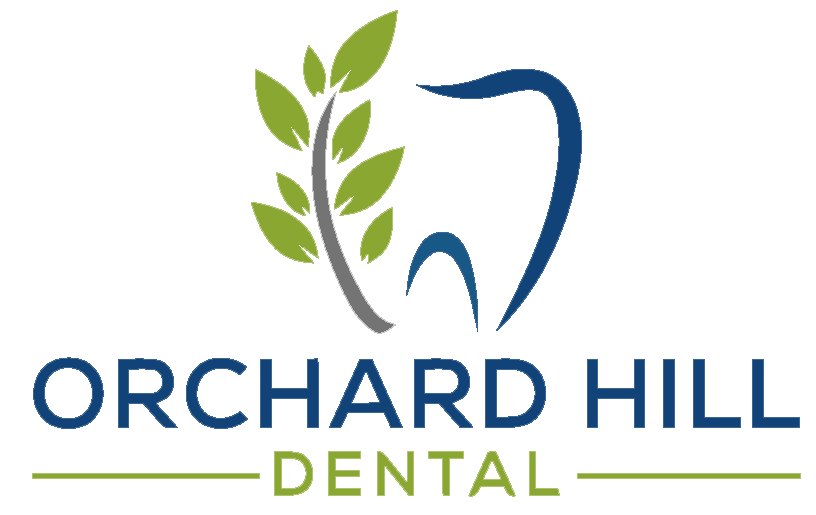Do you have red, swollen, or bleeding gums? You may be developing periodontitis or gum disease. The infection of gum tissue causes this condition. Plaque that infects the gums can inflame them and cause bleeding. As gum infection progresses, pockets can form between teeth, loosening them or causing them to fall out.
Gingivitis is the earliest stage of gum disease. We characterize it as an inflammation of the gums. However, if it is caught soon enough, gingivitis is treatable and reversible. Periodontitis is gum disease and can also impact your physical health and wellness. Gum disease can make disease management more difficult for patients with existing conditions, including heart problems.
Dr. Jessica Christy of Orchard Hill Dental provides restorative dental treatment to patients, including periodontal therapy. Contact your dentist in Hendersonville, NC, by calling (828) 247-7001 today. You may also request an appointment on our website.

Treating Gum Disease at Orchard Hill Dental
Dr. Christy uses a dental laser to treat patients with gum disease. With periodontal laser therapy, we use the soft tissue diode laser to remove infected gum tissue from the tooth root. Exposing the tooth root allows Dr. Christy to scrape plaque from below the gum line. This type of periodontal disease treatment is called root scaling. Then, she will smooth the tooth root to prevent future infection. During the healing process, healthy tissue will regenerate.
Stages of Gum Disease
There are four main stages of gum disease. The disease progresses very quickly so it is important to be aware of common signs so we can address them and begin treatment as soon as possible when needed. Continue reading to learn more about the stages of gum disease, symptoms of each stage, and treatment options.
Gingivitis
The first stage of gum disease is medically known as gingivitis. This is the first and least severe stage of periodontal disease. The most common symptoms that you are developing gingivitis are gums bleeding upon contact, along with swelling and inflammation in the gums. Luckily, this stage of gum disease can be easily reversed by increasing ones oral care routine. Brushing and flossing twice daily is crucial to the prevention and treatment of gum disease.
Mild Periodontitis
If gingivtis is left untreated it develops into mild periodontitis. Once a patients gum disease has developed to mild periodontitis gums begin to recede and pockets form around the gum line. These pockets house plaque and bacteria that continues to cause infection. Mild perioontitis is typically treated by deep cleaning and scaling and root planing. This removes plaque that is built up around the gum line.
Moderate Periodontitis
The thirds stage of gum disease is known as moderate periodontitis. Once a patient reaches this stage of gum disease their gums begin to deteriorate further and bone loss begins to take place. Pockets begin to deepen leading to increased infection and further damage. More advamced treatment options may be used at this point, including gum grafting.
Advanced Periodontitis
The final and most severe stage of periodontitis is advanced periodontitis. Once the disease has reached this stage treatment is necessarry to prevent tooth loss and many other severe helath concerns. Bone loss has occured and teeth may begin to feel loose. At this poitn damage is irreversible, however treatment is used to prevent progression of the disease. Bone grafting, gum grafting, and flap surgery are all proedures that are commonly used in treatment for advanced periodontitis.
Gum Disease FAQs
Do you have further questions about gum disease and options for treatment? Continue reading to find answers to frequently asked questions in our office.
How long does it take to cure periodontal disease?
It can take anywhere from 2 weeks to a couple of months to heal from periodontal disease, depending on the severity of the infection. The healing period varies based on the severity of the disease and how a patient’s gums respond to treatment.
Will I lose my teeth if I have periodontal disease?
Patients with periodontal disease are at risk for bone and tooth loss. The stage of periodontal disease in which tooth loss is most likley is advanced peirodontitis. Untreated infection from periodontal disease attacks tooth structure which can lead to tooth loss.
How successful is periodontal treatment?
Periodontal treatment has an overall success rate of 87%. This includes surgical and non-surgical treatment. The sooner we catch the disease and begin treatment, the easier it is to treat periodontitis.
What is the main goal of periodontitis treatment?
Cleaning the pockets around teeth properly and avoiding harm to the surrounding bone are the two main objectives of periodontitis treatment. The best chances for treatment success come from daily oral hygiene, managing dental health, and quitting smoking.
What to expect after a periodontal cleaning?
After a periodontal cleaning, patients should expect the treatment area to be sore and potentially swollen. Minor bleeding and tenderness is common. This should subside within a few days.
Does a periodontal cleaning hurt?
For patients with gum disease, especially as it becomes more severe, dentists advise extensive tooth cleaning. Tartar accumulation below the gum line is eliminated by deep cleaning. Local anesthesia is used to keep you comfortable during the cleaning. Although it is not painful, the gums may feel irritated afterward.
Causes of Gum Disease
Patients with these conditions may be predisposed to gum disease:
- Smoking
- Tobacco use
- Certain medications
- Improper oral hygiene
One of the main preventative measures against gum disease is good oral hygiene, including brushing and flossing twice a day, and even after meals. Using mouthwash in moderation can also help to reduce plaque build-up. Be sure to schedule regular dental cleanings and visits to the dental office to ensure that you are getting the oral care you need.
Symptoms of Periodontitis
There are multiple signs of periodontitis to look out for:
- Swollen, red gums
- Loose teeth
- Bleeding gums
- Toothaches
- Receding gums
- Bad breath
- Mouth sores
Have you noticed any of these symptoms? Contact our Hendersonville, North Carolina dental office. Our dental team will work with you to remove infection at the source.
